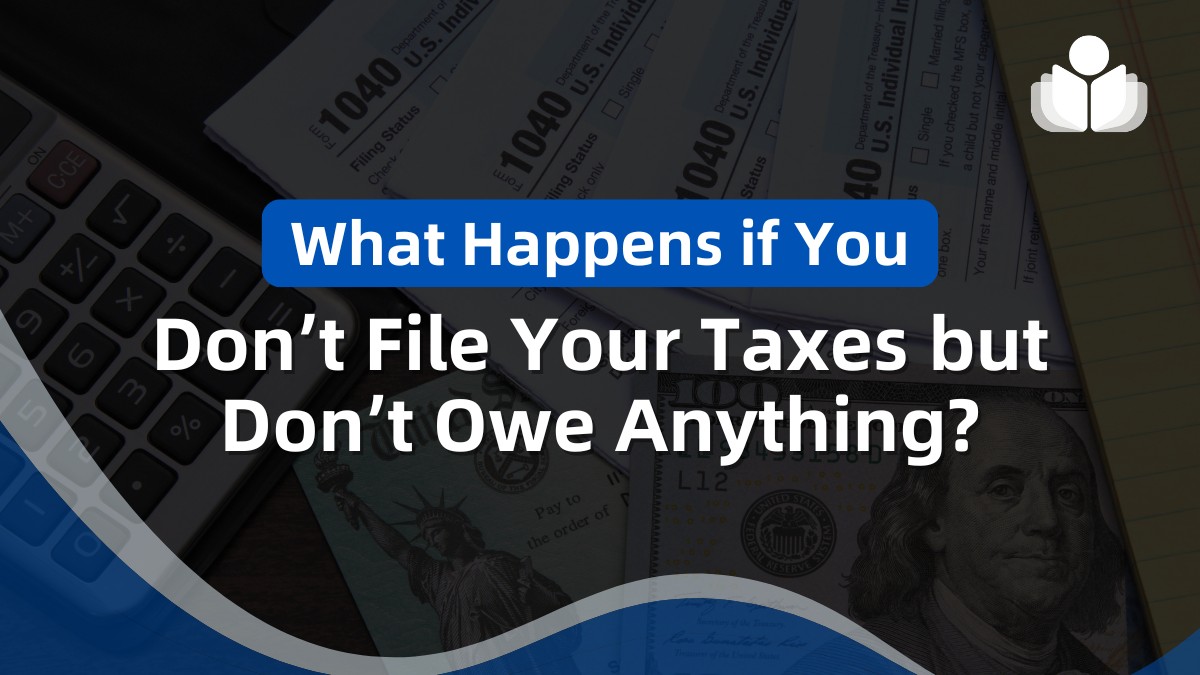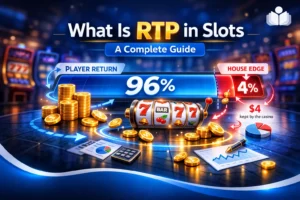Many people scramble to file their returns during tax season to avoid penalties and interest charges. But what if you don’t actually owe any taxes? Is it still necessary to file? If you’re wondering what happens if you skip filing your tax return when you owe nothing, the answer might surprise you.
While not owing taxes might mean you avoid penalties for non-payment, skipping your tax return can still have serious consequences. You could miss tax refunds, credits, and potential future benefits. Let’s break down what happens when you don’t file, whether you owe the IRS anything, and why filing is almost always a smart move.
>> TurboTax Makes Tax Filing Easy >>
Are You Required to File a Tax Return?
The IRS requires taxpayers to file a tax return if their income exceeds a certain threshold. This threshold varies depending on your filing status, age, and type of income.
Here are the income thresholds for filing a tax return in 2025 (for the 2024 tax year):
| Filing Status | Age | Income Threshold |
| Single | Under 65 | $13,850 |
| Single | 65 or older | $15,700 |
| Married Filing Jointly | Both under 65 | $27,700 |
| Married Filing Jointly | One 65 or older | $29,200 |
| Married Filing Jointly | Both 65 or older | $30,700 |
| Head of Household | Under 65 | $20,800 |
| Head of Household | 65 or older | $22,650 |
| Married Filing Separately | Any age | $5 |
| Self-Employed | Any age | $400+ net self-employment income |
You may not be legally required to file a tax return if you earn less than these amounts. However, even if you aren’t required to file, doing so might benefit you.
>> File Your Taxes Fast With TurboTax >>
What Happens If You Don’t File but Don’t Owe Taxes?
If you don’t owe any money to the IRS, you might think skipping your tax return won’t make a difference. But here’s what could happen:
1. You Could Miss Out on a Tax Refund
Many people don’t owe taxes at the end of the year because they’ve already had taxes withheld from their paychecks. If too much was withheld, you’re entitled to a refund. But the IRS won’t automatically send you that money—you must file a tax return to claim it.
Example:
- You earned $30,000 in 2024 and had $1,500 withheld from your paychecks
- After applying the standard deduction and tax credits, you actually owe $0 in taxes
- The IRS owes you a refund of $1,500, but you won’t get it unless you file your tax return
Even if you’re not required to file, it’s worth checking to see if you qualify for a refund.
2. You Could Lose Valuable Tax Credits
Some tax credits, such as the Earned Income Tax Credit (EITC), Child Tax Credit, and education credits, are refundable—meaning they can put money in your pocket even if you don’t owe taxes.
You’re wasting money if you qualify for these credits but don’t file your return.
3. You Have a Limited Time to Claim Refunds
The IRS gives you three years to claim a tax refund. If you don’t file within that time, you forfeit the money forever.
Example:
- You didn’t file your 2021 tax return but were owed a $900 refund.
- If you don’t file by April 15, 2025, you lose the refund permanently.
Don’t assume that just because you don’t owe the IRS, you don’t have money waiting for you.
4. It Could Impact Your Future Benefits
Filing your taxes helps establish a record of your earnings, which is crucial for:
- Social Security benefits (your earnings determine your future benefits).
- Applying for loans (some banks require tax returns as proof of income).
- Government assistance programs (such as Medicaid or housing assistance).
Even if you don’t owe anything today, skipping your tax return could affect you years later.
5. If You Get Paid Under the Table, You Could Raise Red Flags
If you don’t file at all, and the IRS later finds unreported income under your name (from a W-2, 1099, or bank interest statement), they might flag your account for review.
Not filing won’t automatically trigger an audit, but it can draw attention if the IRS has tax documents (such as a W-2 or 1099) that don’t match an income report.
>> TurboTax Helps You Get Every Deduction >>
What If You Skipped Filing for Previous Years?
If you haven’t filed in years, the good news is that the IRS rarely penalizes you if you don’t owe any money. However, if you missed refunds or tax credits, you might still file retroactively and claim that money if you’re within the three-year deadline.
To fix missing tax returns:
- Gather your tax documents (W-2s, 1099s, previous returns)
- File the missing return(s)—either online or by mail
- If you’re owed a refund, expect a delay—older refunds can take longer to process
If you aren’t sure whether you should file for past years, you can check your tax transcript on the IRS website to see if you’re owed money.
>> Maximize Savings With TurboTax Now! >>
How to File Your Taxes Quickly and Easily
Even if you don’t think you owe anything, filing your taxes can still be beneficial. If you had taxes withheld from your paycheck, you might be entitled to a refund, but you won’t receive it unless you file. Fortunately, tax software makes filing fast, simple, and stress-free.
Why Use Tax Software?
Filing taxes manually can be time-consuming, and mistakes can lead to delayed refunds or missing deductions. Tax software automates the process, ensuring:
- Accurate calculations – Prevents errors that could cause penalties or missed refunds.
- Step-by-step guidance – Walks you through the process and ensures you claim all eligible credits.
- E-file and direct deposit – Speeds up refund processing compared to mailing a paper return.
- IRS compliance – Software is updated regularly to reflect the latest tax laws and deductions.
Here are some of the best tax software options to consider:
TurboTax – Best for Beginners and Maximum Refunds
TurboTax is a great option for first-time filers or those needing step-by-step assistance. The software asks simple questions and automatically fills in the necessary tax forms.
Features:
- Automatically checks for refund opportunities and deductions
- Offers a free version for simple tax returns
- Provides on-demand help from tax experts (paid versions)
Why choose TurboTax? It’s user-friendly, accurate, and great for maximizing refunds.
>> TurboTax Simplifies Your Tax Return >>
TaxSlayer – Best for Self-Employed Filers and Affordable Premium Features
TaxSlayer offers a strong balance between affordability and premium features, making it an excellent choice for self-employed individuals, freelancers, and those with more complex returns.
Features:
- Lower prices compared to TurboTax and H&R Block for similar features
- Provides deduction and credit assistance to maximize refunds
- Includes self-employed tax guidance with higher-tier plans
Why choose TaxSlayer? It’s great for those who want premium features without the high price tag of competitors.
H&R Block – Best for In-Person and Online Help
H&R Block allows users to file online or visit a physical location for in-person assistance. This is a solid choice if you want to speak with a tax professional.
Features:
- Online tax prep with real human support
- In-person tax filing at H&R Block locations
- Offers a free file option for simple tax returns
Why choose H&R Block? It’s ideal if you want a mix of self-service filing and expert support.
>> File Smarter With H&R Block Today >>
FAQs: Not Filing Taxes When You Don’t Owe
What Happens if I Don’t File a Refund and the IRS Owes Me a Refund?
You have three years to claim your refund. If you don’t file in time, you lose the money forever.
Will I Get Penalized for Not Filing if I Don’t Owe Anything?
No, the IRS doesn’t charge penalties for failing to file if you don’t owe taxes. However, you could miss out on money in refunds or tax credits.
Can I File Taxes for Previous Years if I Miss a Refund?
Yes! You can file tax returns for the past three years to claim any missed refunds.
What Should I Do if I Haven’t Filed for Several Years?
If you didn’t owe money, you likely won’t face penalties. But you should file as soon as possible to check if you’re eligible for refunds or credits.
>> Get Started With TurboTax Today >>
Final Thoughts: Should You File Even If You Don’t Owe?
If you don’t owe taxes, skipping your return might not get you in trouble, but it could mean losing out on a refund, tax credits, or future benefits. Filing your taxes—especially if you had taxes withheld from your paycheck—is often worth the effort.
Even if you think you don’t owe anything, double-check your eligibility for a refund. You could be leaving money on the table that rightfully belongs to you. Filing is quick, free in many cases, and can put money back in your pocket.
 Sections of this topic
Sections of this topic
















